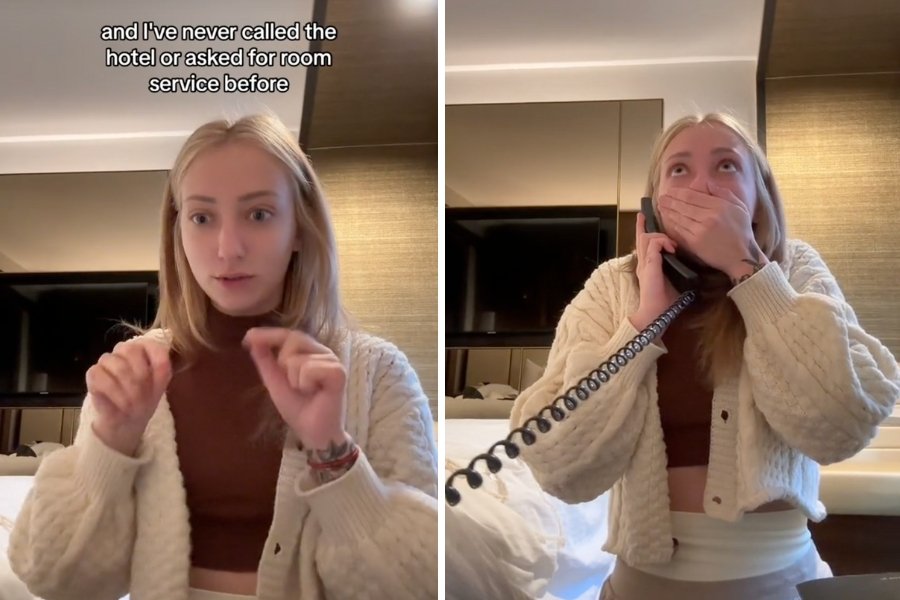One of the weirdest parts of being human is how none of us really knows what’s happening in another person’s head or how other people act when they’re by themselves. We often wonder if we’re the only ones whose brains work a certain way or if other people go through the same mental or emotional obstacle courses we do when performing certain tasks.
When you live with someone who deals with mental/emotional challenges like anxiety or someone who lives life with neurodivergence, you see a bit more of people’s behind-the-scenes reality. But even then, there are things we don’t fully see because they’re happening internally.
One autistic woman, however, has offered an insider look into her internal processing in a video showing her ordering room service at a hotel for the first time.
Paige Layle is a Canadian woman who shares various aspects of her life on social media to raise awareness and advocate acceptance for autism and ADHD. In a TikTok video that’s been viewed 4 million times in one day, she explained that she was at a hotel and wanted to order breakfast, then walked viewers through her whole process of anxiously preparing, actually making the phone call and her emotional relief after the fact.
People who don’t struggle with the uncertainty of a phone call, even a basic one like ordering room service, may wonder what all the fuss is about. But people on the spectrum and people who struggle with social anxiety or anxiety about making phone calls will likely recognize themselves in this video.
Watch:
The rehearsing what you’re going to say as well as what the other person will probably say, the silent freakout upon actually pushing the button, the sudden shift into “totally normal person” mode once the phone call commences, the adrenaline explosion after hanging up, the shaking out of the excess nervous energy, the “that was okay, but awful” sentiment—it’s all so familiar to so many people, whether they’re dealing with autism, ADHD, anxiety or some combination of them all.
But the person on the other end of the phone would never have guessed this was happening behind the scenes. Paige even handled the unexpected coffee addition with zero issue. Knowing that unexpected things might come up in a conversation is what creates anxiety about phone calls like this, so the fact that she didn’t skip a beat when the dialogue diverged from what she’d planned out in her head was genuinely impressive.
Some people might wonder about her “and no one’s mad at me or anything” remark, but that’s not an unusual concern for people on the autism spectrum as well as people with ADHD and others who might experience rejection sensitive dysphoria.
People in the comments commiserated with Paige while cheering her on.
“I’ve only ordered room service ONCE and this was the EXACT experience. I earned that French toast,” shared one commenter.
“You did amazing!!!! I’ve actually never ordered room service because I hate phone calls… too much anxiety!” wrote another.
“The progression from ‘anticipatory panic’ to ‘perfect execution’ and finally ‘post-mental breakdown’ was so real lol i relate,” shared another.
“The way you did it perfectly but wrapped that in panic is me everyday,” wrote another.
And that’s really the crux of it. So many people struggle mightily internally while successfully doing everyday things, with no one on the outside ever knowing the mental and emotional journey it took for them to do those “normal” things. Hopefully, videos like this will help us all give a little more grace and understand why people might be more exhausted or less willing to do things than it seems like they should be. When it’s this much work to order a yogurt, imagine how much energy it takes to do other things. This is where a little awareness and empathy can go a long way toward acceptance and understanding.
Follow Paige Layle on TikTok and check out her upcoming book: “But Everyone Feels This Way: How an Autism Diagnosis Saved My Life.”






































